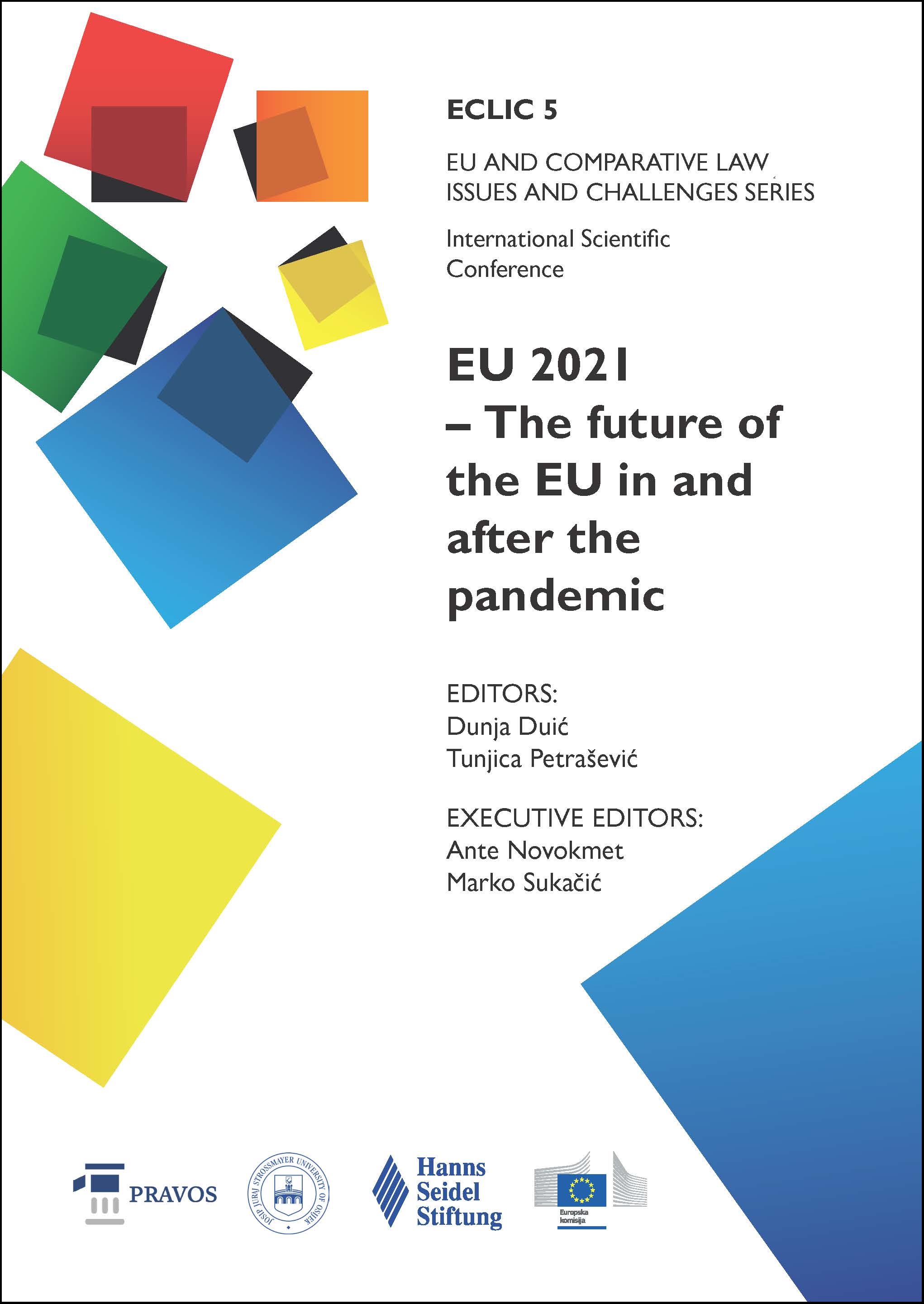HOW FIRM ARE THE BONDS THAT TIE THE EU TOGETHER? EU RULE OF LAW CONDITIONALITY MECHANISM AND THE NEXT GENERATION EU RECOVERY FUND
DOI:
https://doi.org/10.25234/eclic/18299Abstract
The Covid-19 pandemic has generated a one-in-a-generation challenge upon the EU, consisting of immediate danger for life and health, savings and jobs of its citizens, as well as for the stability and proper functioning of political and legal systems of its Member States. The manner in which the EU as a whole reacted to such sudden and grave challenge is by no means indicative of its political and legal-constitutional substance, and, consequently, of its capacity to subsist in its present form or to develop further. The centrepiece of the Next Generation EU (NGEU) is the Recovery and Resilience Facility, which should help Member States address the economic and social impact of the COVID-19 pandemic. The establishment of the pandemic recovery fund may be regarded not only as an ad hoc measure, but also as a crucial milestone in the path to overcoming the disbalance between Union solidarity and national interests. However, the whole EU budget deal depended on the acceptance of the Rule of Law Mechanism by all Member States. In the first part, this paper will analyse the COVID-19 recovery fund compromise solution as it has been finally agreed. Firstly, we will try to determine the effectiveness of the conditionality mechanism, in the light of European Council Conclusions on the “interpretative declaration on the new Rule of Law Mechanism” and its legal effects. Secondly, we will tackle the issue of the enforcement of the Rule of Law protection mechanism, having in mind the causal link that should be detected, between the protection of the financial interests of the EU, with the non-respect of the EU values enshrined in the Article 2 TEU, by particular Member State(s). Consequently, we will try to envisage the impact of the implementation of this conditionality mechanism, taking into consideration which Member States, and EU citizens, would be “hit” hardest by it. In the second part of the paper an attempt shall be made to perceive the conditionality mechanism, tied to the recovery fund, from the perspective of the principle of solidarity. Ultimately, this paper will try to answer the following question: in view of the necessary shift of priorities and the need for urgent reaction to the COVID-19 crisis, is the common European answer, in view of the core values of the EU and the principle of solidarity, optimal, and above all, will it be effective?
Downloads
Published
How to Cite
Issue
Section
License
Copyright (c) 2021 Maja Lukić Radović, Marija Vlajković

This work is licensed under a Creative Commons Attribution-NonCommercial 4.0 International License.
Authors retain the copyright on the papers published in the Journal, but grant the right of first publication to the Journal. Papers accepted for publication or already published in ECLIC of the Faculty of Law in Osijek may be published by the author(s) in other publications only with proper notice of its previous publication in ECLIC.


